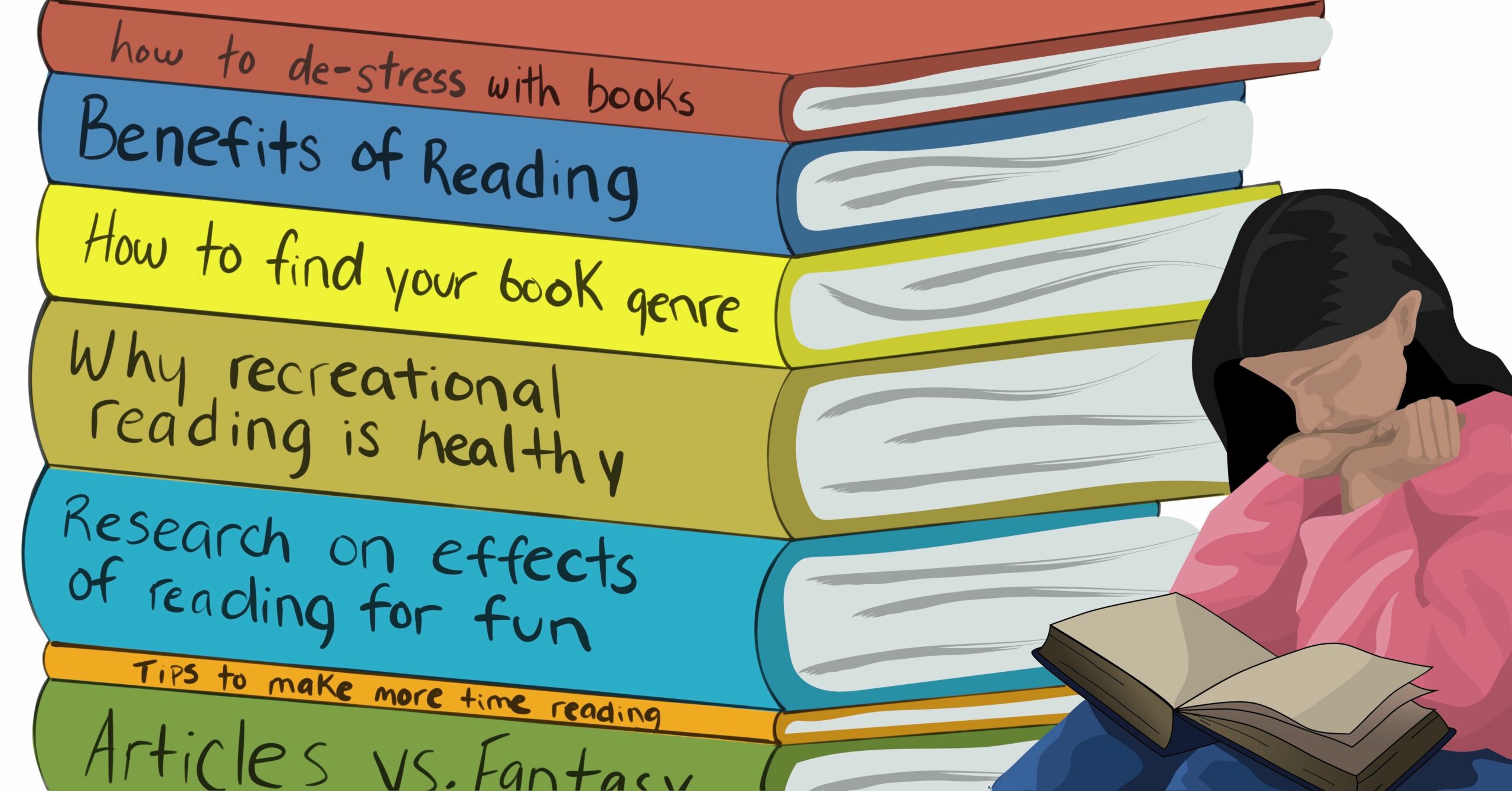Read more for pleasure, read less for school
Reading in your free time helps alleviate psychological stress from coursework.
Over the past four years, I have read more words in academic journals than I’ve read words in works of fiction. I am certain that I am not alone.
The main issue, however, is not that we are reading journals instead of stories—it is that I’m reading more for school than for myself. The Journal for Academic College Health has found that recreational reading helps reduce stress in students. Specifically, they discovered recreational reading only reduced stress if the students were motivating themselves to read.
A new problem arises when we accept this. How can the university encourage recreational reading if motivation should be an automatic response, not one stirred up by professors? That’s the thing, reader! It’s up to you! The study by The Journal for Academic College Health also defines autonomous reasoning as “personal interest or meaning.” So, it comes down to this: if you have a personal interest in the content or reading, you will be motivated and have reduced stress. But, let’s be real—we aren’t always piqued by every reading in class, so we feel forced and unmotivated to read. And what does that equal? Little to no pleasure from reading.
I know. This sucks! On top of having to deal with university, relationships, and work, you have to organize your life in a way that lets you read more? I know reading is not the most interesting hobby, especially because it is so much harder than listening to music or binging a new show, but studies show it can alleviate anxiety. Still, the university cannot force you to read, because it would not do the intended goal of filling you with tranquillity.
Instead, find meaning in your freedom. Discover an interesting way to self-motivate in a way that works for you. Personally, I have taken to a new strategy: since I am more of a film person than a book person, I have decided to set a limit on myself. I can only watch a movie after I have read 50 pages of a book. That might not seem like much, but I watched 226 movies last year alone. So far this year, I have seen 155. Limiting myself to watching films only after reading has been rewarding for me.
I have to say, over the past year, I have found more pleasure in having read (and discussed) Breakfast of Champions, White Noise, Short Cuts, Love in the Time of Cholera, Runaway, and more, than in any other media, I have consumed. There is a communal aspect to reading that is often overlooked. When you meet someone who has read the same book as you, it is like you have been through a journey together. The more specific or obscure the book, the stronger the connection. This happens with music and film too. “You like the Microphones?” or “You’re a fan of Tarkovsky too?” But with books, it is like there is a shared struggle rather than a shared experience. You can click play on a film or an album, but with a book, you have to sit there for hours, actively using your imagination and visualizing the words in order to finish. Every time I meet someone who has read William Faulkner, Toni Morrison, or James Joyce, they know what it is like to read a text that is not only emotionally devastating but a challenge to understand.
However, there are people in many disciplines whose free time is already completely consumed by their course loads. How can engineering students focus more on reading if they’re burned out from studying? They can’t. And professors cannot simply reduce their course load and assume students will use that time to read. They cannot enforce recreational reading because that’s not the point. Recreational reading is for those who are capable and free to do it.
Motivation is different for each person, and frankly, it’s very hard to be motivated when you’re under a time squeeze. Between demanding course loads, personal responsibilities, and everything else your life may entail, recreational reading time just might not be in your books. But, setting time aside for yourself, and keeping yourself motivated to read the types of books you love might just be the quick fix for you.
In all honesty, I am not sure if there is a solution that could be applied to every single student. Here’s what I know: before sitting down and browsing the Criterion Channel for another Wim Wenders film, I’ll be grabbing my copy of Slouching Towards Bethlehem.

